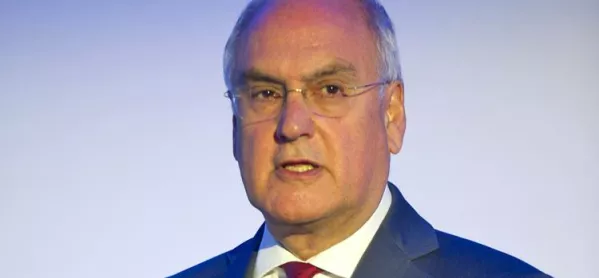Ofsted chief Sir Michael Wilshaw has called for 16- to 19-year-olds to be educated in schools and not in FE institutions, which he claims are “large and amorphous” and cause students to “drop out”.
In another scathing review of the FE sector, Sir Michael told MPs in a meeting of the education committee that “the FE sector is in a mess” and that vulnerable learners who do not achieve a C grade in maths and English should continue to be educated in a “school-based environment”.
“My view - and it’s a bit of a policy thing this, but never mind I’m going to say it - is that 16-19 [learning] should be done in a school-based environment, not in an FE institution. Often you talk to lots of headteachers and they’ll say their weakest and most vulnerable youngsters, who need a secure and small environment, or an environment that they know well, head off to an FE institution, which is a large, amorphous, 10,000-sized institution on a number of campuses, and do badly. They get lost, [they] drop out,” he said.
Sir Michael added: “The FE sector is in a mess, that’s why the government is reviewing it at the moment and is considering radical proposals for restructuring. It’s not very good; our view at Ofsted [is] that youngsters who don’t do well at 16 often don’t do well two years later, particularly in English and maths where results are pretty poor, and we see all sorts of stuff that is going on in the FE sector that isn’t good.”
‘Not what the nation needs’
He continued: “We also find in too many FE institutions that they haven’t thought carefully enough about their curriculum, and the curriculum is often irrelevant to the local workplace and national employment needs. There is a real problem at the moment, and there are real funding constraints. There are big problems in terms of the financial viability of many of these institutons. As a result, a number of them have amalgamated and consolidated into very large institutions at the moment. I’m not sure they’re delivering what the nation needs.”
In response to Sir Michael’s comments, Martin Doel, chief executive of the Association of Colleges, said the chief inspector “should not be sharing his private and personal opinions about further education colleges in a public capacity”. “His comments are unhelpful and unsubstantiated. They are also overwhelmingly at odds with the findings of his inspectors,” he added.
“Further education colleges provide high-quality technical and professional education and training for young people, adults and employers. They provide the 844,000 16- to 18-year-olds who choose to study or undertake apprenticeships in colleges with valuable employability skills, helping to develop their career opportunities and strengthen the local, regional and national economy.”
Want to keep up with the latest education news and opinion? Follow TES FE News on Twitter, like us on Facebook and follow us on LinkedIn




